 Petzlover
Petzlover Barbet is originated from France but Schweizer Niederlaufhund is originated from Switzerland. Barbet may grow 23 cm / 10 inches higher than Schweizer Niederlaufhund. Barbet may weigh 13 kg / 29 pounds more than Schweizer Niederlaufhund. Both Barbet and Schweizer Niederlaufhund has almost same life span. Both Barbet and Schweizer Niederlaufhund has almost same litter size. Barbet requires Moderate Maintenance. But Schweizer Niederlaufhund requires Low Maintenance
Barbet is originated from France but Schweizer Niederlaufhund is originated from Switzerland. Barbet may grow 23 cm / 10 inches higher than Schweizer Niederlaufhund. Barbet may weigh 13 kg / 29 pounds more than Schweizer Niederlaufhund. Both Barbet and Schweizer Niederlaufhund has almost same life span. Both Barbet and Schweizer Niederlaufhund has almost same litter size. Barbet requires Moderate Maintenance. But Schweizer Niederlaufhund requires Low Maintenance
 The Barbet is an ancient European waterdog, with the first references to it coming way back from 1387. This breed is thought to serve as a common ancestor for several other waterdogs, and these include the poodle. The breed was used to retrieve water fowl from water, and today it is used as a gundog and as a companion.
The Barbet is an ancient European waterdog, with the first references to it coming way back from 1387. This breed is thought to serve as a common ancestor for several other waterdogs, and these include the poodle. The breed was used to retrieve water fowl from water, and today it is used as a gundog and as a companion.
The name ‘Barbet’ comes from the French word for beard, which is ‘barbe’. The Kennel Club has announced that this dog is to be described as being in a class of its own, and it has become the 220th pedigree breed.
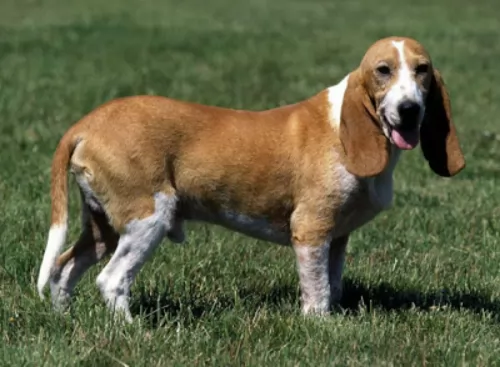 Originating in Switzerland, the Schweizer Niederlaufhund was established around 1900, when hunting became restricted to districts. The Swiss hunter needed a slower dog for the limited territory they could hunt in. Crossing selected Schweizer Laufhunds with Basset Hounds and other selected smaller, short legged hounds developed the Schweizer Niederlaufhund. By 1905 there was already a Schweizer Niederlaufhund Club.
Originating in Switzerland, the Schweizer Niederlaufhund was established around 1900, when hunting became restricted to districts. The Swiss hunter needed a slower dog for the limited territory they could hunt in. Crossing selected Schweizer Laufhunds with Basset Hounds and other selected smaller, short legged hounds developed the Schweizer Niederlaufhund. By 1905 there was already a Schweizer Niederlaufhund Club.
The Niederlaufhund became one of the best hunting dogs in the world, with its powerful body and ability to outhunt the Laufhund in tracking big game. Slower of course than the Laufhund it has a great sense of smell and an ability to easily find wounded animals. There are a few varieties, just like with the Swiss Hound again mostly because of their coloring. The Luzerner Niederlaufhund, the Jura Neiderlaufhund, and the Schwyzerlaufhund. They have musical voices that they use to communicate with the hunters and each other as well as that amazing sense of smell. They can hunt for hours without tiring and without much information from the hunter.
They are a cross breed not recognized by the larger kennel club such as the AKC and the UKC. They are recognized by the Dog Registry of America, Inc. (DRA), the American Canine Association Inc. (ACA) and most importantly by the Federation Cynologique Internationale (FCI). This last one is important because it could lead to recognition as a new breed by the UKC and the AKC.
 The Barbet is a medium-sized breed of French water dog, measuring anything between 52–66cm in height. The dog is known for his thick, curly textured coat and even the head and tail are covered with this dense hair. His coat is waterproof.
The Barbet is a medium-sized breed of French water dog, measuring anything between 52–66cm in height. The dog is known for his thick, curly textured coat and even the head and tail are covered with this dense hair. His coat is waterproof.
The coat can vary in color and these colors can be brown, grey, white, fawn or black. The dog isn’t a heavy shedder. The Barbet’s tail is long and somewhat raised but not erect. He has long, wide pendant ears set at eye height, the skull is broad and the neck short and strong.
With his kind brown eyes, it simply adds to the kindly expression of this attractive gun dog. He is a friendly, fun-loving dog, and makes a great family pet. He loves to swim and in fact has webbed paws to assist him with his swimming. Some dog owners say that this intelligent active breed can be a great watchdog, while others say the being a guard dog isn’t a particularly strong characteristic.
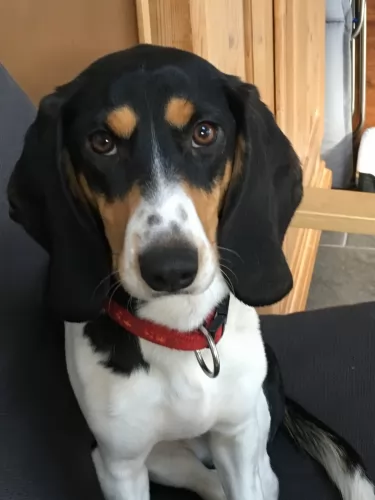 The Schweizer Niederlaufhund is a medium size, short dog. They look like their cousins, the Schweizer Laufhund but smaller. Their body is just slightly longer than it is tall, so you are left with the impression of a mostly square dog. The Niederlaufhund is well put together, with strong legs, a noble head, long droopy ears, broad chest, and a low held tail.
The Schweizer Niederlaufhund is a medium size, short dog. They look like their cousins, the Schweizer Laufhund but smaller. Their body is just slightly longer than it is tall, so you are left with the impression of a mostly square dog. The Niederlaufhund is well put together, with strong legs, a noble head, long droopy ears, broad chest, and a low held tail.
The Small Lucerne Hound has a white cote with smooth speckles of black or gray making them appear to be blue.
The Small Bernese Hound has a tricolor coat of white, tan and black. There are tan marks on the eyebrows. There is a wire haired Small Bernese as well. He has a short beard.
The Small Schwyz Hound is smooth coated in white with orange or yellow-red patches. The wired haired version is extinct.
The Small Jura Hound is a single coated dog with a black coat and tan marking above his eyes as eyebrows as well. He might have some white as well.
 Most Barbets do superbly well with children and are naturally gentle with them. It is always important to teach children to respect animals and to be kind towards them. Even a gentle dog like the Barbet can turn aggressive if taunted beyond their endurance.
Most Barbets do superbly well with children and are naturally gentle with them. It is always important to teach children to respect animals and to be kind towards them. Even a gentle dog like the Barbet can turn aggressive if taunted beyond their endurance.
Barbets are social, good mixers and they get on well with other pets in the family, more so when they have been properly socialized. As a Sporting breed, the Barbet is energetic and loves to be involved in games and activities. He is such a versatile dog – gentle and friendly and he makes a wonderful devoted pet. Of course, he is also suited for use as a working dog, after all this breed was originally used for hunting waterfowl.
Treat him well and the thanks you’ll get will is unconditional friendship and loyalty.
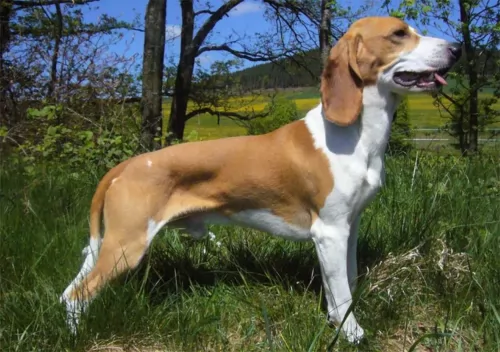 Children friendliness – yes, they are but use caution around small children and small prey.
Children friendliness – yes, they are but use caution around small children and small prey.
3. Adaptability - needs room to run and explore – is very frustrated when confined.
 The Barbet is a rare breed and therefore not much is known about particular health issues affecting him. Some health issues that you will need to be alert about with your Barbet are ear infections, hernias and hip dysplasia.
The Barbet is a rare breed and therefore not much is known about particular health issues affecting him. Some health issues that you will need to be alert about with your Barbet are ear infections, hernias and hip dysplasia.
A veterinarian should be consulted if your dog shows signs of these ailments. The risk of a Barbet developing any health condition can always be significantly reduced by making sure you buy your Barbet from a reputable breeder. If he is fed well and taken to the vet when he does get sick, he can live to be 13 to 15 years of age.
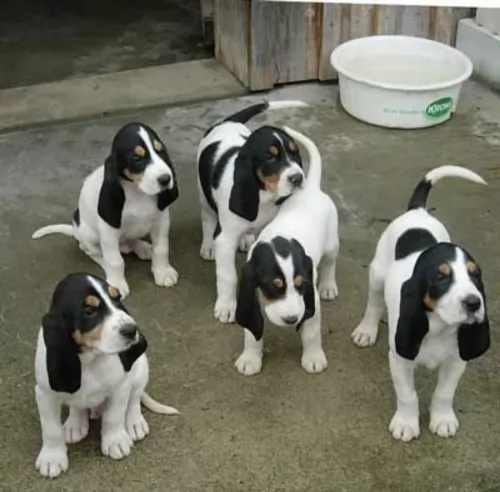 The Niederlaufhund Is prone to a very medical issues to keep an eye on. They include:
The Niederlaufhund Is prone to a very medical issues to keep an eye on. They include:
• Hip Dysplasia – This comes from hip joints that are not well formed and cause reduced mobility and pain. Parents can be tested before the dogs are bred to make sure their hips are good, and that dysplasia will not be passed to puppies. This dysplasia can cause arthritis and even lameness.
• Ear Infections – With long drooping ears it is easy for the dog to acquire ear infections. This is even more so for a hunting dog like the Niederlafhund. It is important to clean the dog’s ears on a regular basis.
 The Barbet’s coat is longish and curly, much like a poodle, and long, wooly coat This being the case, moderate maintenance is required. Brushing and grooming twice a week will be necessary to keep the coat from matting too much. In fact, some Barbet owners prefer to keep their Barbets professionally groomed so that the thick hair is fairly short all over.
The Barbet’s coat is longish and curly, much like a poodle, and long, wooly coat This being the case, moderate maintenance is required. Brushing and grooming twice a week will be necessary to keep the coat from matting too much. In fact, some Barbet owners prefer to keep their Barbets professionally groomed so that the thick hair is fairly short all over.
The dog’s ears will also need to be kept clean and dry.
If your Barbet is a farm dog, used for hunting or working purposes, make sure to buy dog food formulated for active dogs. Your Barbet puppy up to the age of 3 months will require 4 meals a day. When your Barbet reaches a year of age he can be fed one or two bowls of food. Speak to your veterinarian about top-quality wet- and dry foods. Every dog will require raw meat added into their food once in a while.
Make sure there is a constant supply of cool, fresh water and also wash his food and water bowls regularly.
The Barbet is an intelligent breed and therefore trainable. Dog owners who care for their pets, see to it that they are trained and have been socialized. This makes dogs much nicer to live with as they get on well with children and other pets and they don’t bark incessantly.
The Barbet is a working breed so you can’t just leave him in your back garden day after day. To stay healthy and happy, he will need to be played with, taken for walks and exercised regularly.
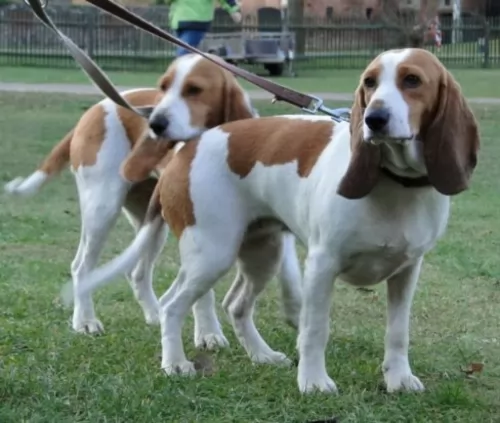 1Feeding the puppy - give 1 cup per day of high quality dog food divided into 3 meals.
1Feeding the puppy - give 1 cup per day of high quality dog food divided into 3 meals.
2.Feeding the adult – give one and one half cups of high quality dog food divided into 2 meals.
4. Games and Exercises – needs a lot of daily exercise and loves field trials, running and activities like barn hunt.